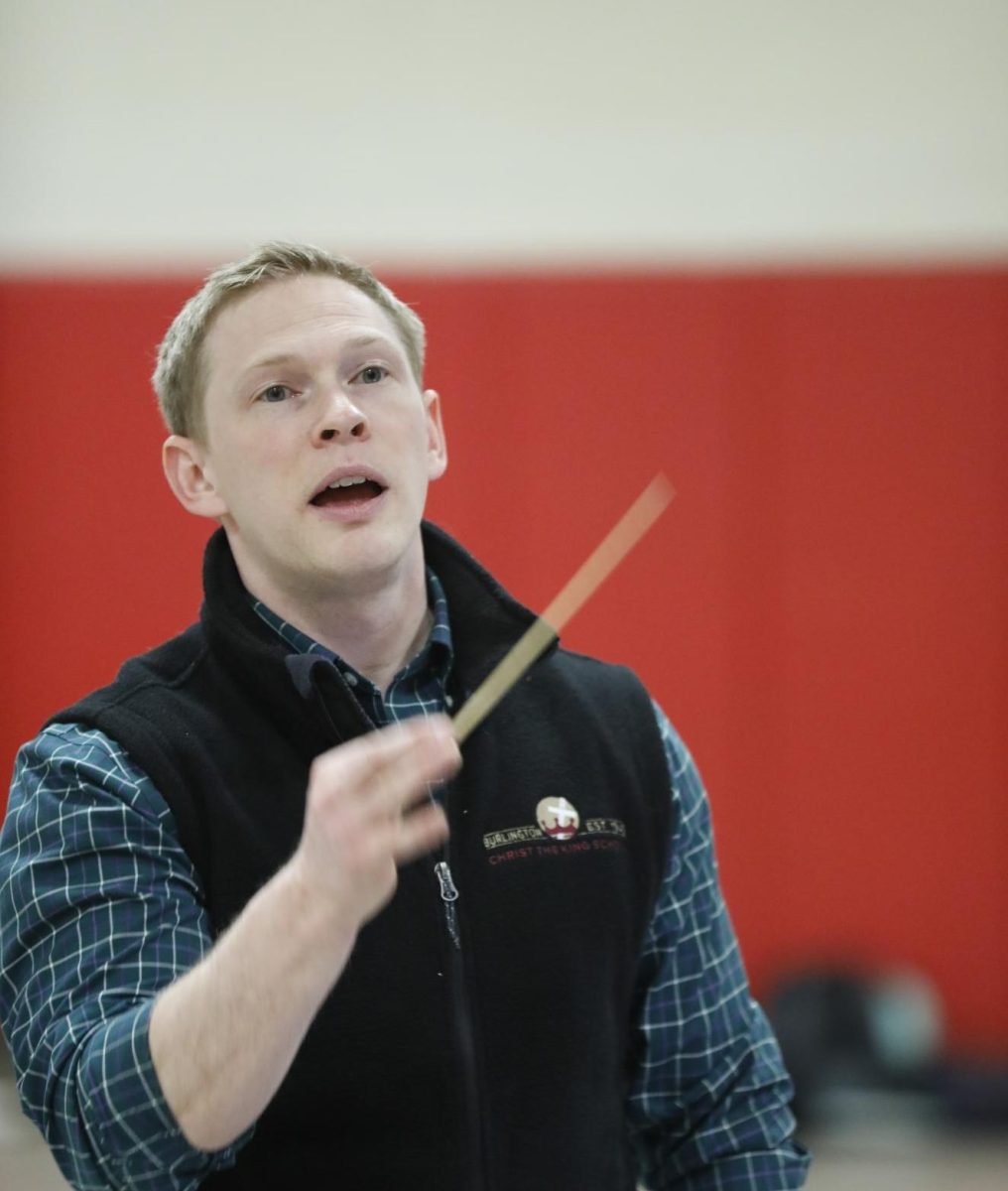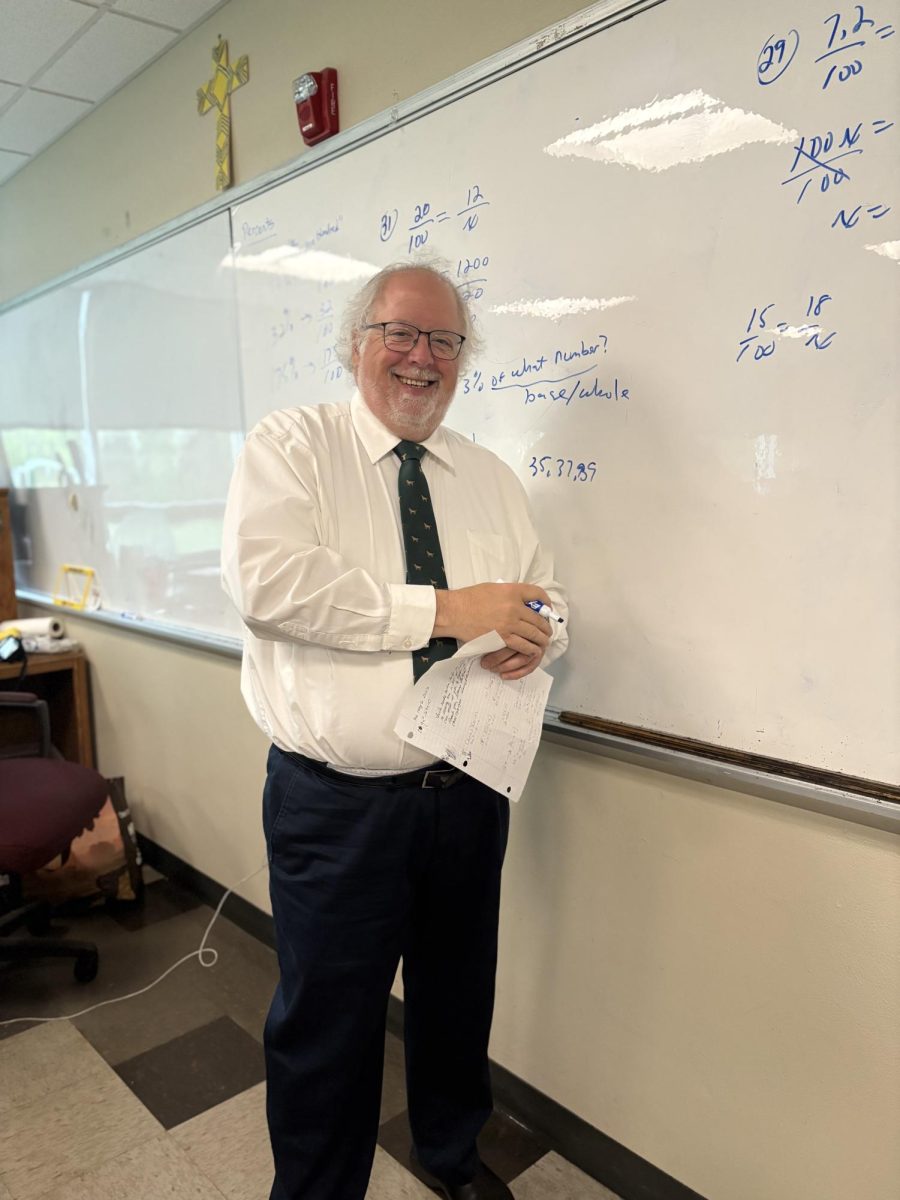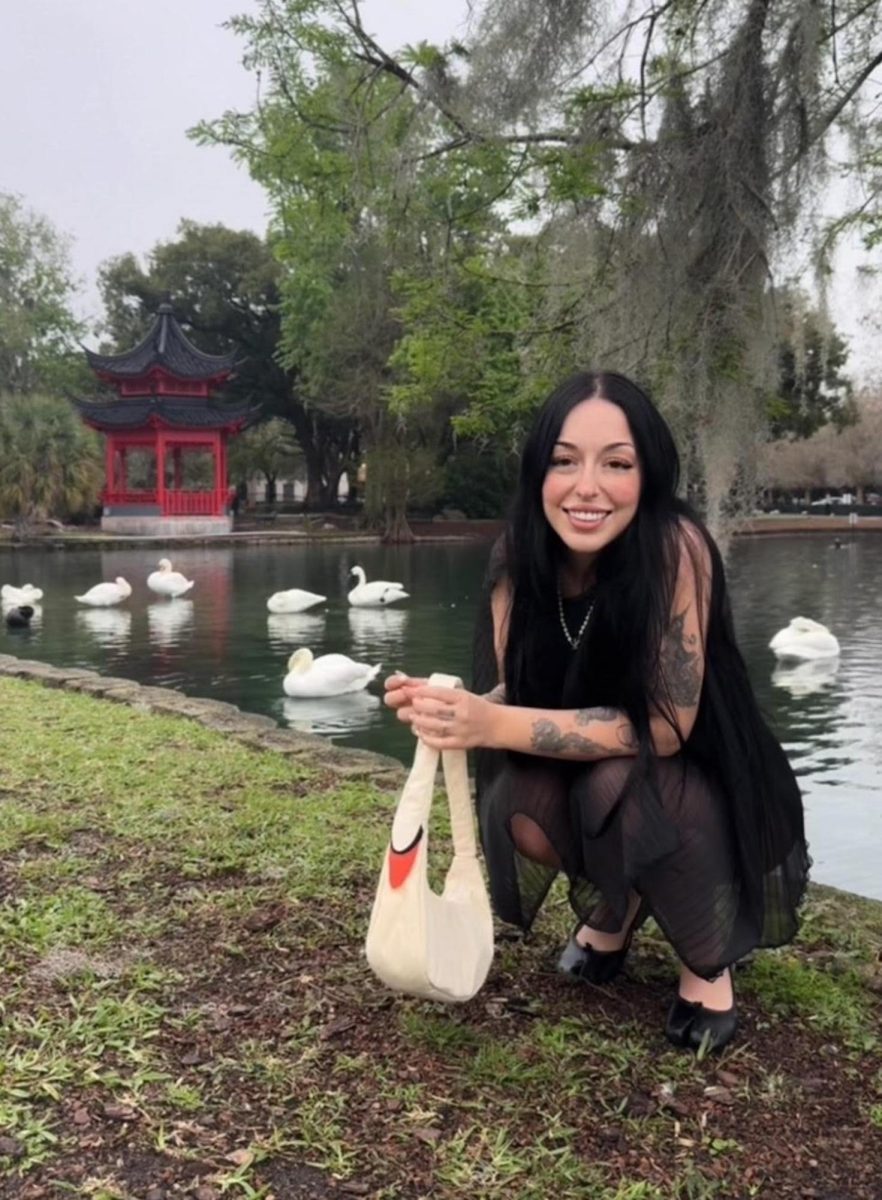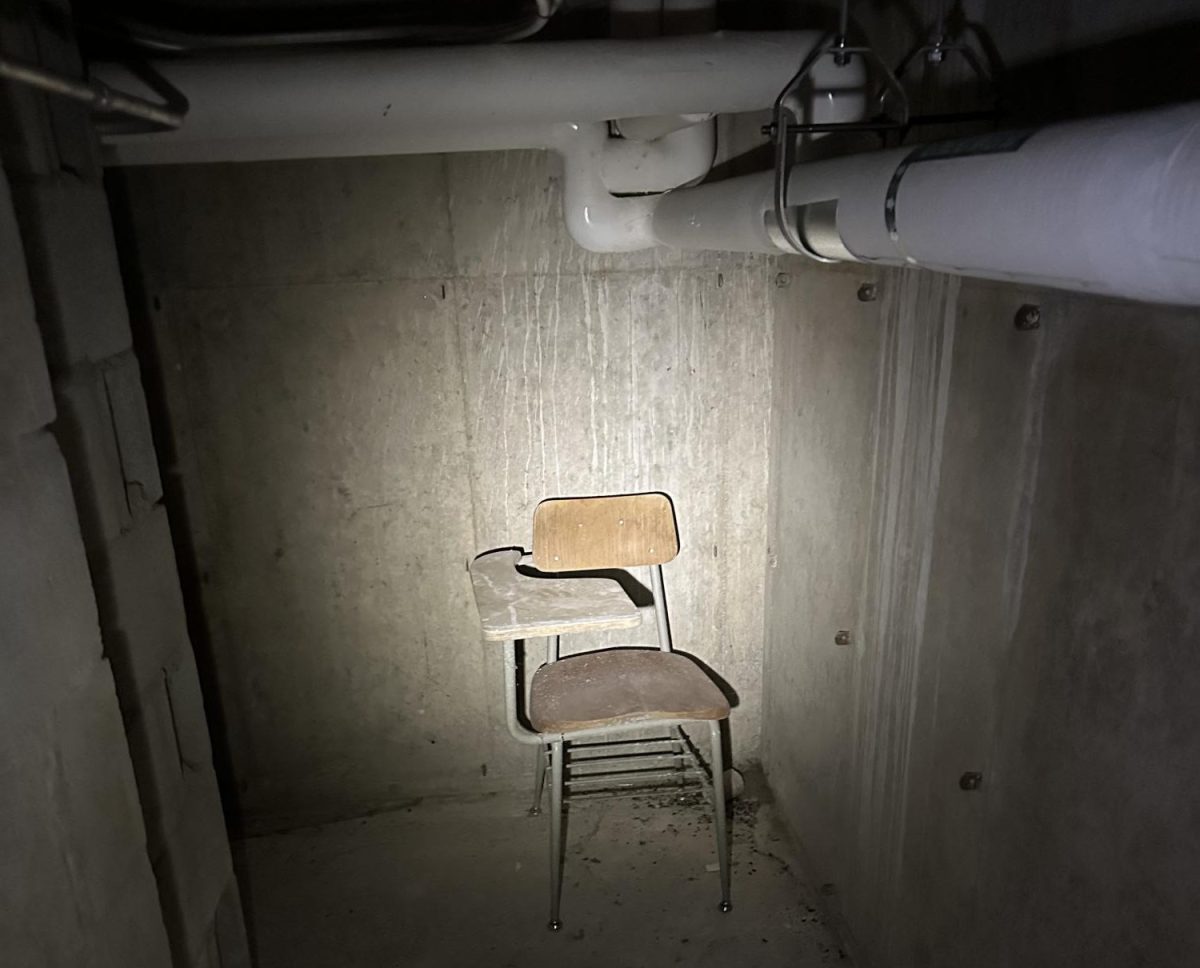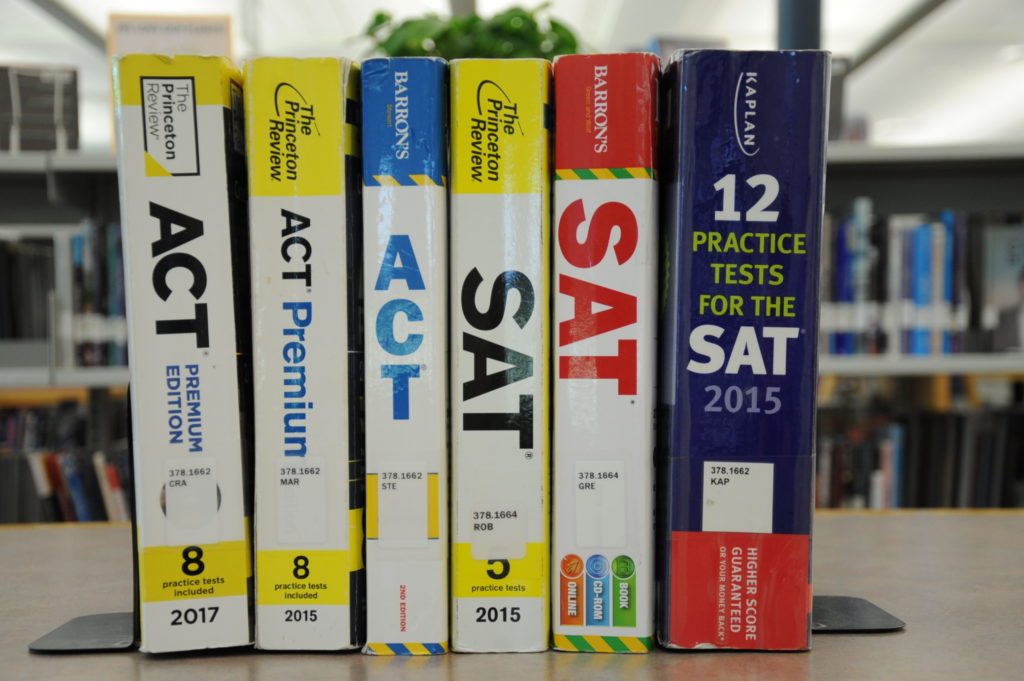Religion teacher Patrick Welsch has been a vital part of the Rice community for many years. As the Morality and Social Justice teacher, he brings a unique and thoughtful perspective to the classroom. He goes above and beyond to ensure that important, and often controversial topics are taught in a safe and supporting environment.
Ever since he was a high schooler in New Jersey, he has been inspired by classmates and others around him to take a faith-based approach to reach out, and do more. His service mission took him abroad to Nepal, where he experienced life at the poverty line and taught children in vulnerable living conditions. He brings these experiences and lessons to the classroom and encourages students to think critically about the social issues in our world today.
Q: The teaching of Morality and Social Justice often involves controversial topics and perspectives. How do you navigate this?
A: The biggest thing is putting yourself in the shoes of students, and seeing things from their perspectives. If you are open-minded and not easily offended that helps. Giving students a choice to step outside of the classroom, and making sure they are comfortable can ease the tension.
Q: What is the most important outcome in talking about uncomfortable, emotional, and personal topics?
A: I think it’s a skill set to be able to talk through those things. It’s kind of universally applicable. You can apply it to different areas of your life in a helpful way. So it’s not just the topics of morality or social justice that are skills that can help with any interpersonal difficulty you can have. Stay calm, see things from other people’s perspective, and have empathy.
Q: Has your perspective ever shifted due to a student’s opposing argument?
A: I think it’s grown or broadened more than shifted to one side or another. And just knowing what students have been through in their own lives and kind of being grateful that there’s more you can learn from students than you could just learn by studying the content. On the level of wisdom instead of knowledge, that kind of understanding matters.
Q: Do you think that Morality and Social justice should be taught in every high school, no matter religious affiliation?
A: Yeah, I think it takes a different type of critical thinking. To engage with issues through the lens of social morality, and not just learning and processing content.
Q: You have mentioned that you enjoy learning from your students. What’s one standout lesson you’ve received?
A: I guess I’m not seeing one time, but repeatedly just seeing how good and supportive students can be to one another…It’s like you can see students shift to empathy for others really quickly when they realize a classmate has been upset. And that’s very impressive to me. That’s something I’d like to be better at myself – a kind of emotional elasticity.
Q: What inspired you to travel and teach around the world?
A: So, I taught at the high school I graduated from for two years right out of college. And I wanted to practice what I was teaching, and realized I didn’t have as much authentic real-world experience in it. And so I thought a good way to do this was either through the Peace Corps or with the Jesuit volunteers. And then choosing the site. I grew up around lots of Latino culture in New Jersey. So, instead of going to the other side in South America, Nepal had the most new experiences, language and religion for me.
Q: Since you have lived and taught in regions that are more vulnerable to social struggles, do you feel connected to what they are experiencing?
A: I guess it’s increased my desire to connect, but also taught me how much you don’t know about their experiences…[and how] it’s kind of presumptuous to assume what others are going through. And so to kind of maintain a stance of curiosity, as opposed to knowledge.
Q: Looking back on your time in Nepal, what are some things that you appreciate and don’t take for granted?
A: Definitely time with my family. That was a lesson in and of itself that would be the way we weren’t allowed to travel. Because we were supposed to be living in the poverty line of the folks we were working with. And then the other one would be upward mobility. The students there are driven to make a better life for themselves, and in the US. you have easier access to that. And then also the U.S. different views of gender roles I found really eye-opening.
Q: If you were to teach abroad again, where would you go?
A: I’d like to go to South America. Actually, I might need to see where the biggest need is first and fulfill the need rather than approaching it from what I want to get out of it.
Q: You like to hike and mountain bike, do you have a favorite memory of doing this while traveling?
A: Yeah, so at the end of my time in Nepal, I ran across the country for a couple of weeks. And I had enough language skills to befriend a lot of people, so I ended up staying in people’s homes. And so initially going there I was thinking about landscape and culture, as religion goes. And then, when leaving, it was just the human connection and smaller interactions that were the most important. As an introvert being forced to make acquaintances, and then being invited into hthe ome was humbling and very gratifying.
Q: When hiking or mountain biking have you ever witnessed changes that remind you of the ongoing climate crisis?
A: Skiing, definitely! Just how the season is shorter, and I ski almost every day in the winter. And so I’m kind of in tune with what the snow coverage is like. And that’s definitely been reduced in the last 10 years. And the amount of erosion on trails in the summer is pretty dramatic as well.
Q: You went to a catholic school growing up, were you taught this subject? If so, were you inspired to one day teach it?
A: No, that was not a part of the curriculum. I was more inspired by my classmates. And I was a devout high schooler and wanted to reach out to those students in a more authentic and approachable way. More so than my friends engaged in their high school time.
Q: What is your favorite, and least favorite social issue to teach?
A: Oh my goodness…so my favorite is whichever one I’m teaching at the moment. And my least favorite is the one coming up. Yeah, I always get nervous about it. I think the issues are so important and I want to represent them well, so…
Q: What is your favorite Welch’s fruit gummy flavor?
A: Um, good question. I’m gonna go grape.
Q: Is there anything that you wished I asked? – Or anything you would like people to know about you?
A: Just, the cliche of teachers learning as much from students and their co-workers is true at Rice. And I feel very grateful to have the opportunity to be here.


